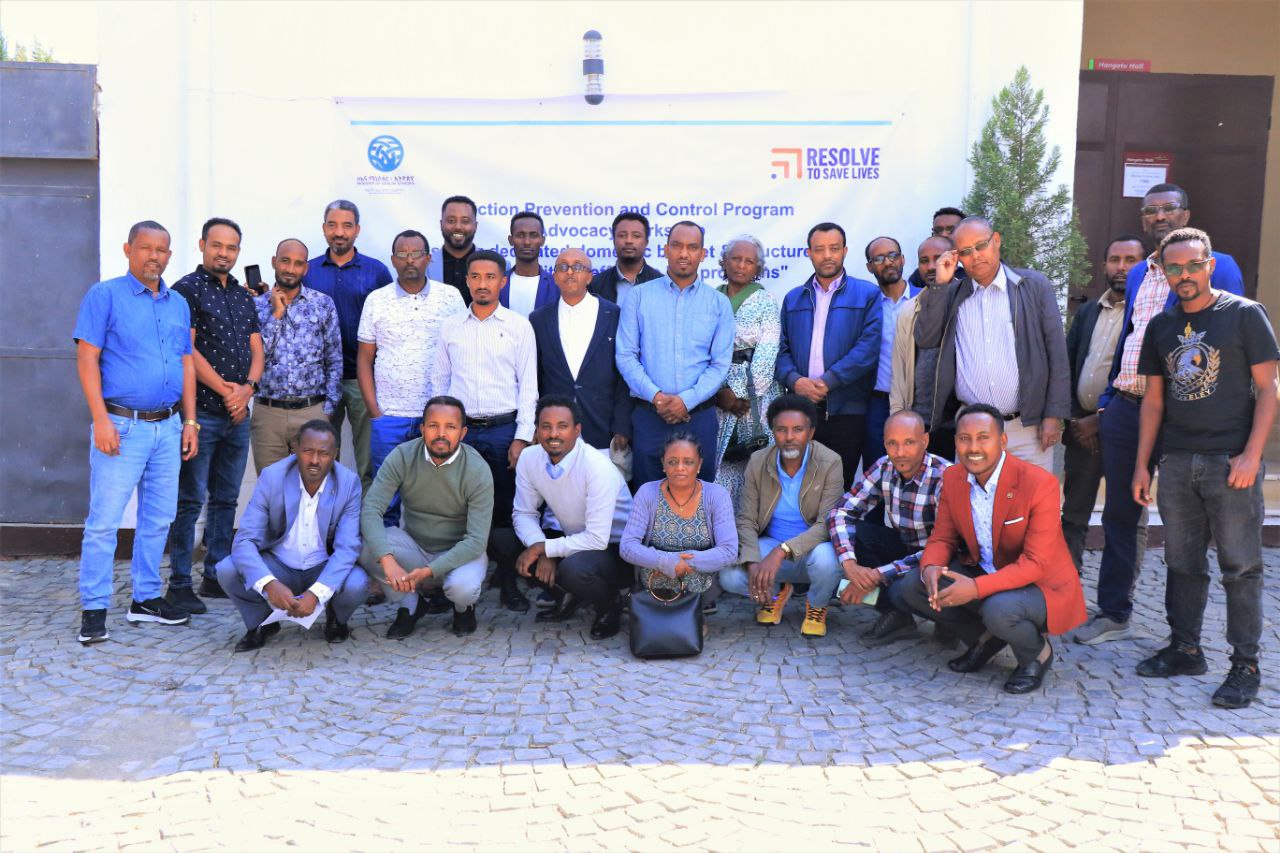Resolve to Save Lives, in collaboration with Ethiopia’s Ministry of Health, Regional Health Bureaus, federal hospitals, and key stakeholders from the Ministry of Finance and regional government finance bureaus, recently hosted a two-day advocacy workshop to secure dedicated domestic funding for Infection Prevention and Control (IPC) initiatives at the Regional Health Bureau and health care facility levels in Ethiopia.
Discussions focused on the need to strengthen IPC programs to combat health care-associated infections (HAIs) and address the growing threat of antimicrobial resistance (AMR). Participants also reviewed the achievements of the national IPC program and outlined planned initiatives to enhance infection prevention efforts in the coming years.
Speaking at the meeting, Mr. Markos Paulos, National IPC Focal Point at the Ministry of Health and Health Services Innovation and Quality Lead Executive Office, underscored the critical role of IPC programs in reducing the burden of HAIs. He highlighted the Ministry’s comprehensive policies, strategies, and roadmap for IPC, emphasizing that collaboration across sectors—especially with those responsible for domestic financing—is essential for ensuring the success and sustainability of these efforts.
On his part, Dr. Robel Terefa, RTSL’s Infection Prevention and Control Technical Advisor in Ethiopia, reaffirmed RTSL’s commitment to strengthening IPC programs at both national and sub-national levels. He emphasized that robust IPC systems are vital for preventing, managing, and controlling infections, particularly in healthcare settings. Dr. Robel also stressed the need for dedicated domestic funding to enhance outbreak preparedness, response, and management, highlighting its importance in strengthening Ethiopia’s public health system and ensuring the long-term sustainability of IPC initiatives.
Also speaking, Dr. Fahimi Ahmed from the World Health Organization (WHO) emphasized the crucial role IPC programs play in safeguarding patients and health care workers. He said strong IPC measures help minimize the risk of HAIs, which can lead to severe complications, prolonged hospital stays, and even fatalities. He noted that implementing rigorous IPC standards and protocols is essential to ensuring a safer health care environment for both patients and medical professionals.
The workshop ended with the development of detailed action plans at the regional and federal hospital levels, focusing on securing dedicated budgets for IPC programs and appointing regional focal points.
